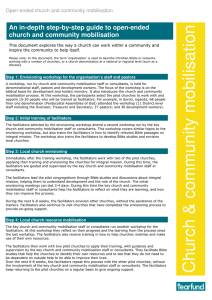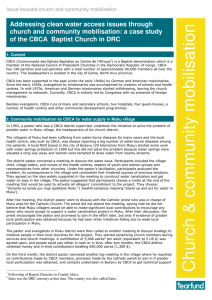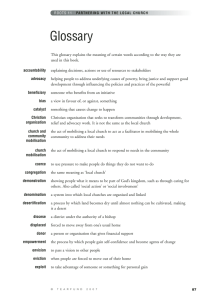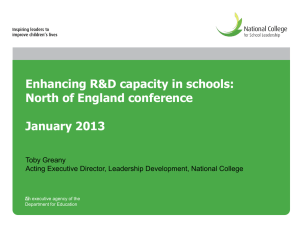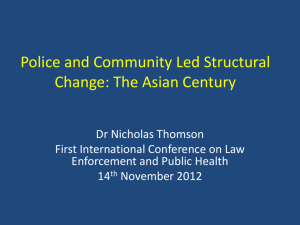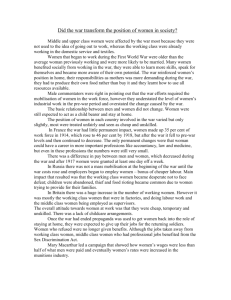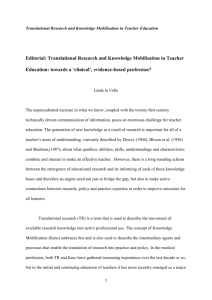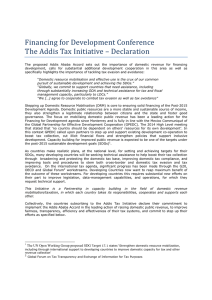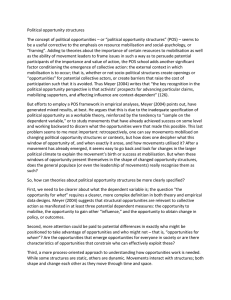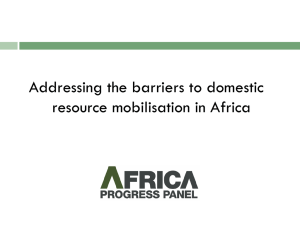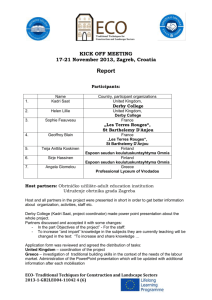University through Community- creating 'institutional culture'
advertisement
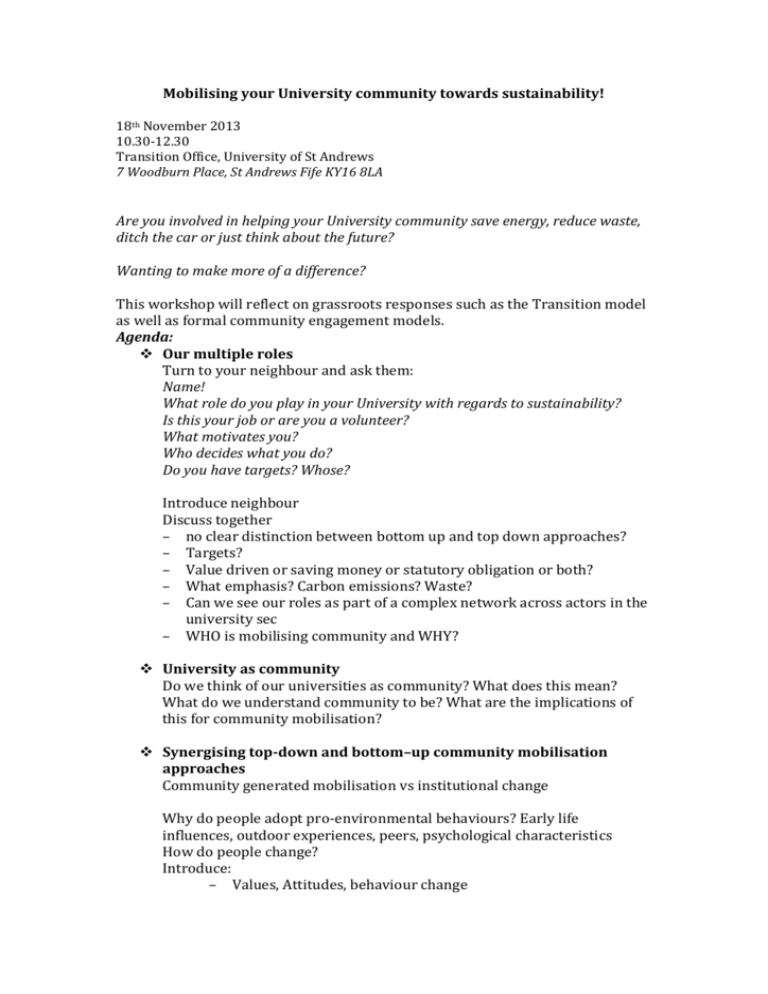
Mobilising your University community towards sustainability! 18th November 2013 10.30-12.30 Transition Office, University of St Andrews 7 Woodburn Place, St Andrews Fife KY16 8LA Are you involved in helping your University community save energy, reduce waste, ditch the car or just think about the future? Wanting to make more of a difference? This workshop will reflect on grassroots responses such as the Transition model as well as formal community engagement models. Agenda: Our multiple roles Turn to your neighbour and ask them: Name! What role do you play in your University with regards to sustainability? Is this your job or are you a volunteer? What motivates you? Who decides what you do? Do you have targets? Whose? Introduce neighbour Discuss together – no clear distinction between bottom up and top down approaches? – Targets? – Value driven or saving money or statutory obligation or both? – What emphasis? Carbon emissions? Waste? – Can we see our roles as part of a complex network across actors in the university sec – WHO is mobilising community and WHY? University as community Do we think of our universities as community? What does this mean? What do we understand community to be? What are the implications of this for community mobilisation? Synergising top-down and bottom–up community mobilisation approaches Community generated mobilisation vs institutional change Why do people adopt pro-environmental behaviours? Early life influences, outdoor experiences, peers, psychological characteristics How do people change? Introduce: – Values, Attitudes, behaviour change – – Social practice Doppelt’s Five aspects of change http://www.google.co.uk/url?sa=t&rct=j&q=&esrc=s&source=web&cd=5&ved=0CEgQFj AE&url=http%3A%2F%2Fcollaborate.csc.noaa.gov%2FPRiMO%2FHazard%2520Cleari ng%2520House%2FClimate%2520Communications%2520and%2520Behavior%2520C hange.pdf&ei=EHiIUuSkKtCjhgfY34GwCg&usg=AFQjCNGS5wcDEL2Z_emo3H8AdZL36AWtQ&bvm=bv.56643336,d.ZG4 What other influences are people exposed to and how do our efforts fit into this bigger picture? Eg media, infrastructural barriers, individual vs collective action Community engagement refs and strategies In small groups 1) How do these theories inform what we do? 2) How could/should the Transition model run at a University? Eg NUS, university, grassroots What would it be? Who should lead it? How could it work? Achieving practical actions in our specific areas Do we have particular focuses? Are some areas more difficult than others? What resources are available to support us? Recognising need for paradigmatic shift but not becoming paralysed by how slow mobilisation can seem. Tools for personal resilience: nature connection, sharing with others, positive relationships, celebrating success, time for reflection, congruence in personal life. Contact rehema.white@st-andrews.ac.uk for further information
